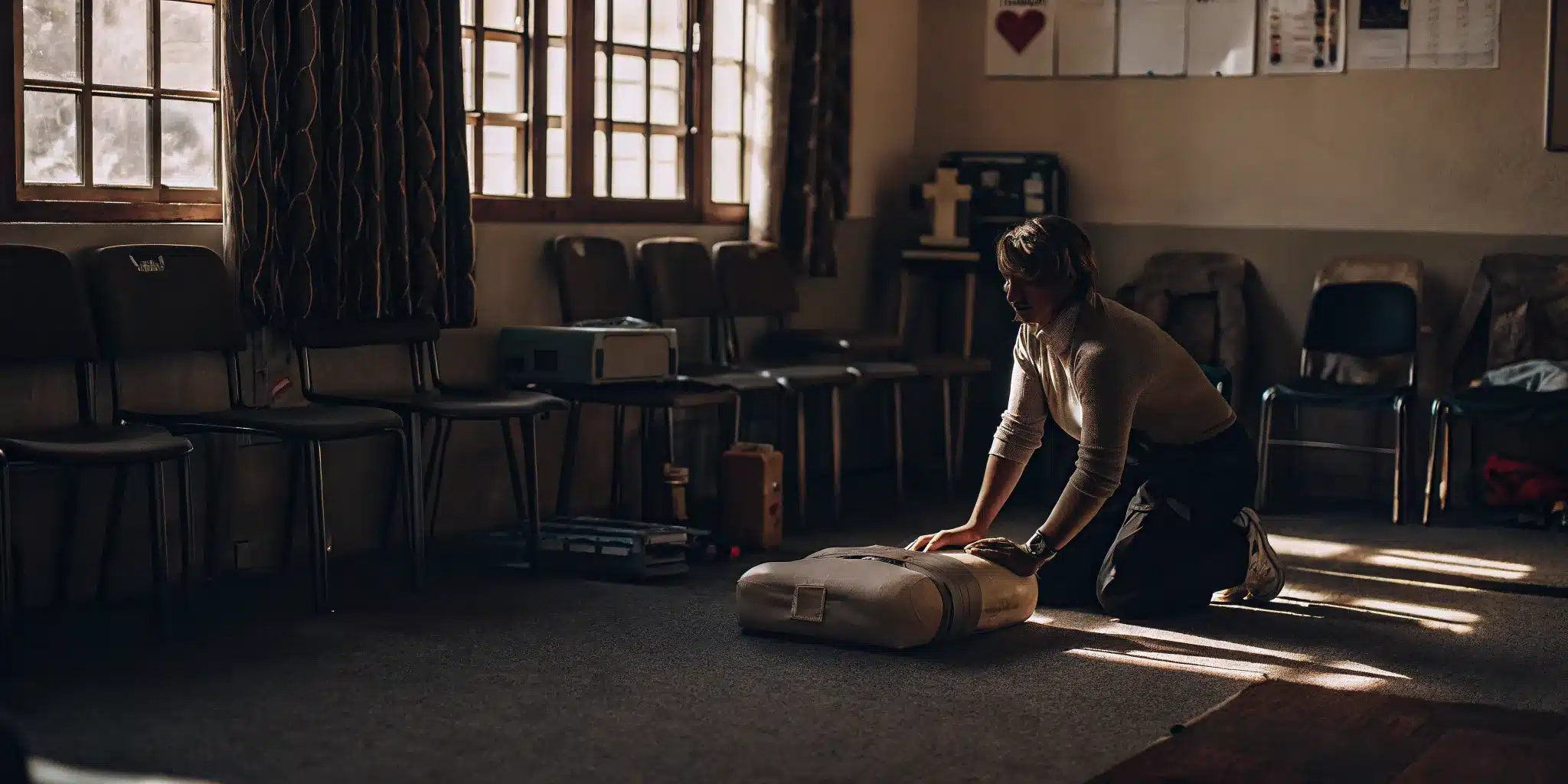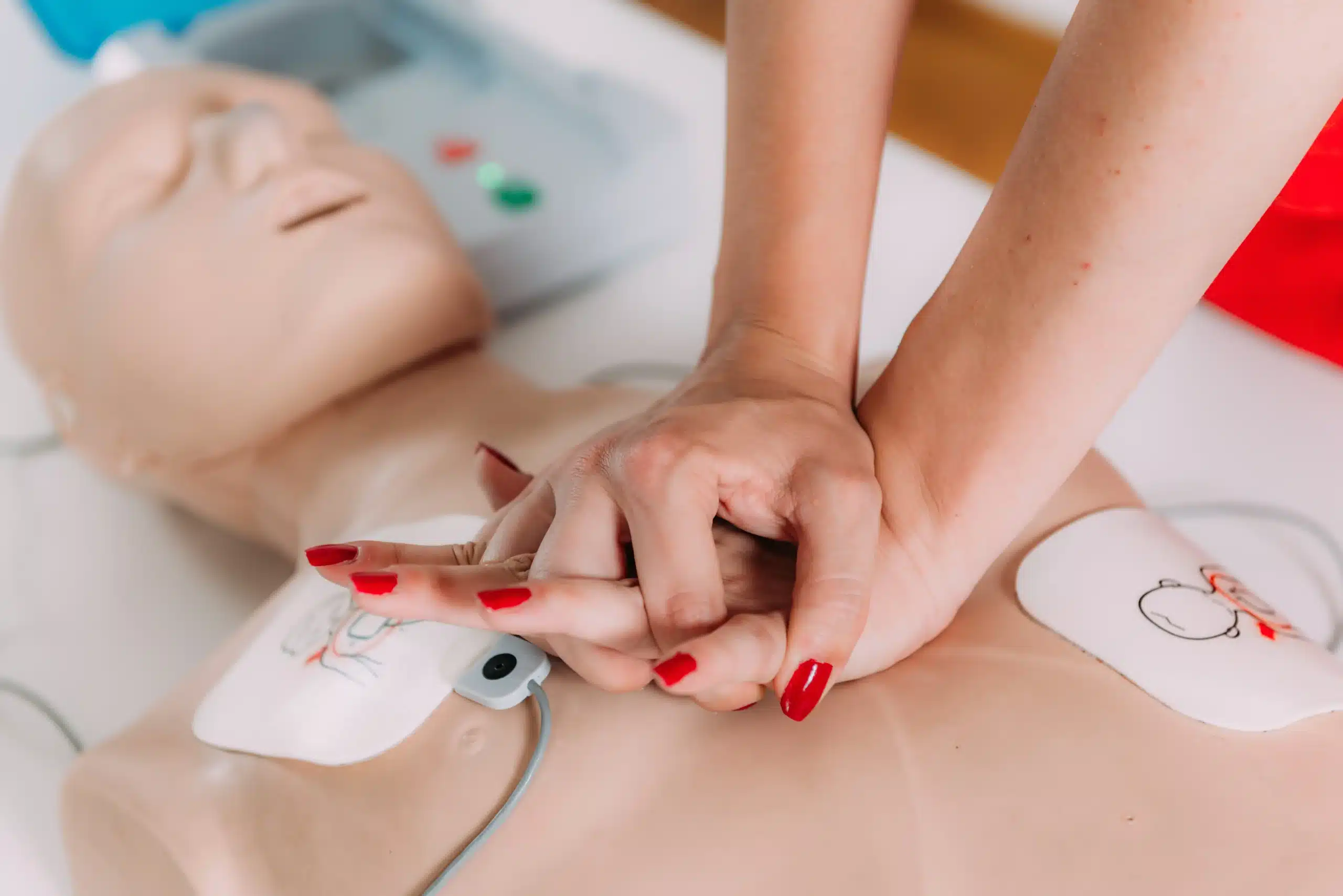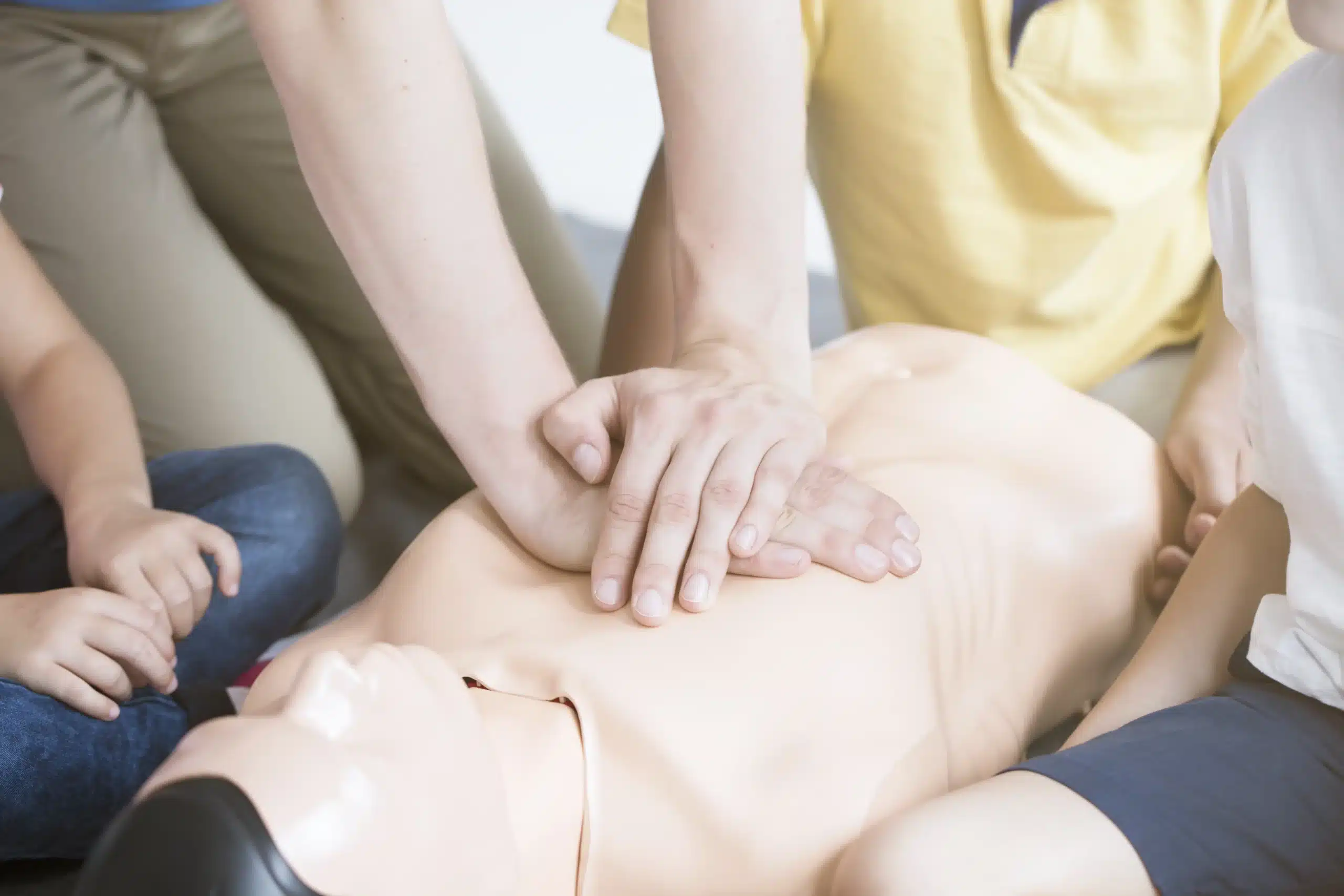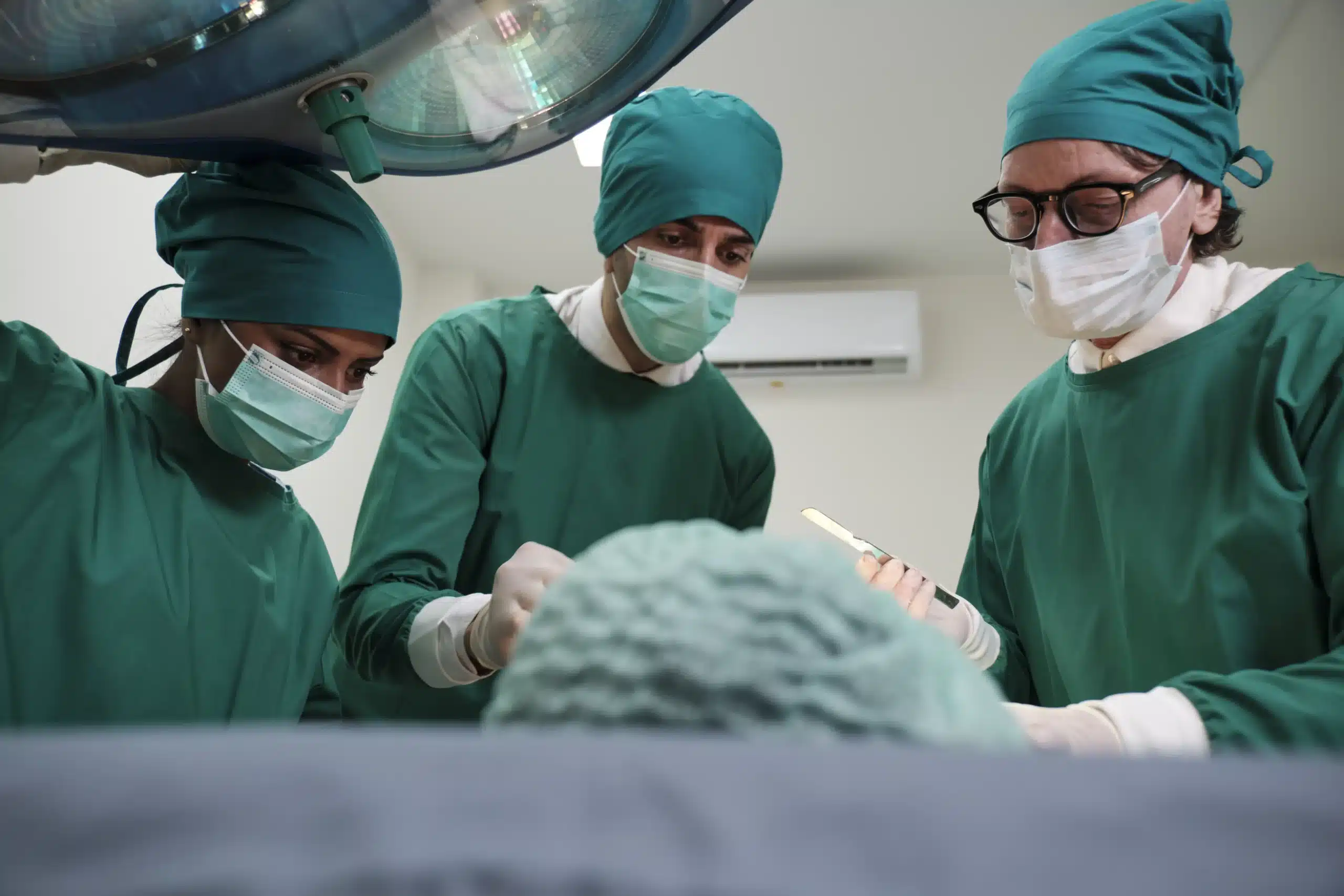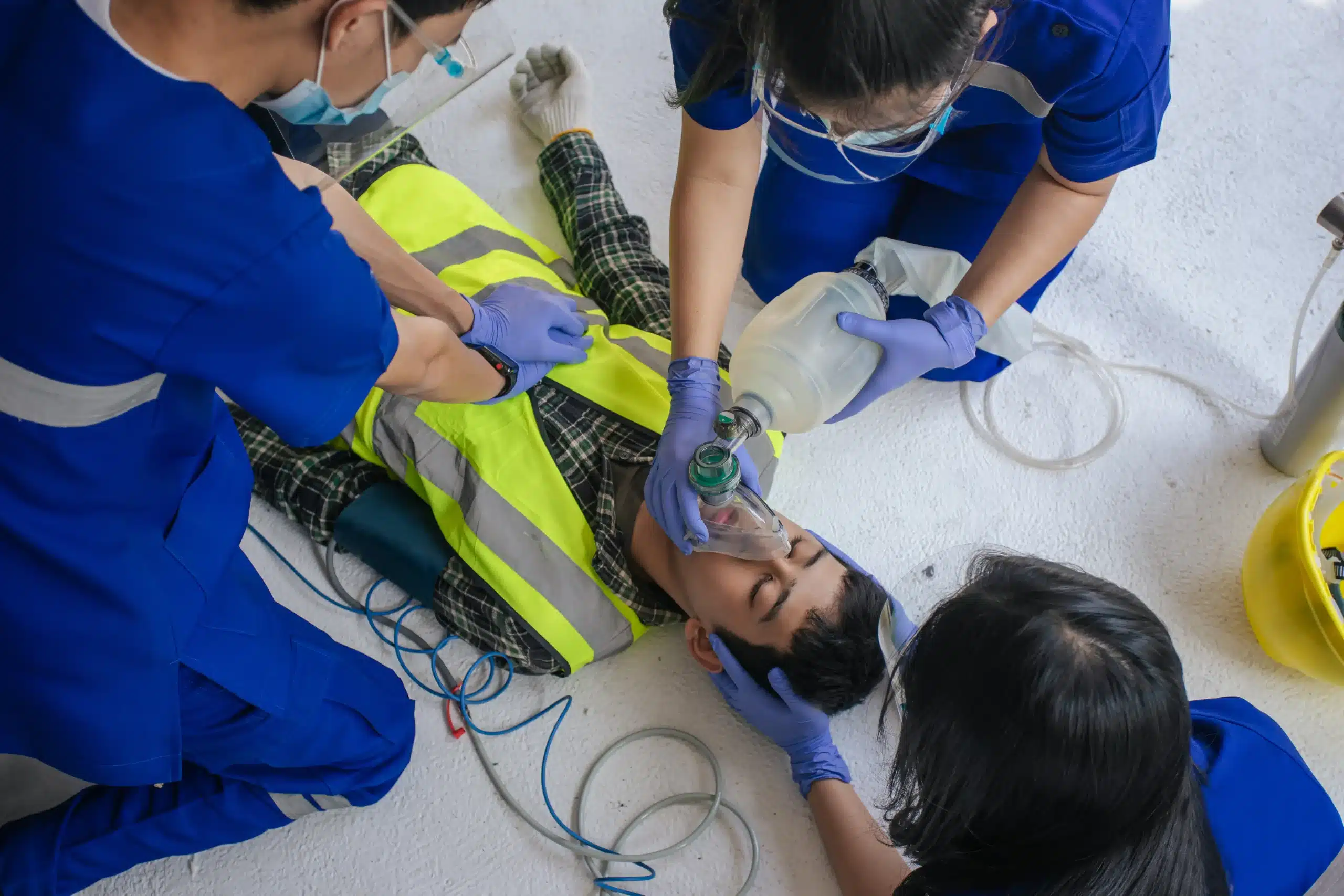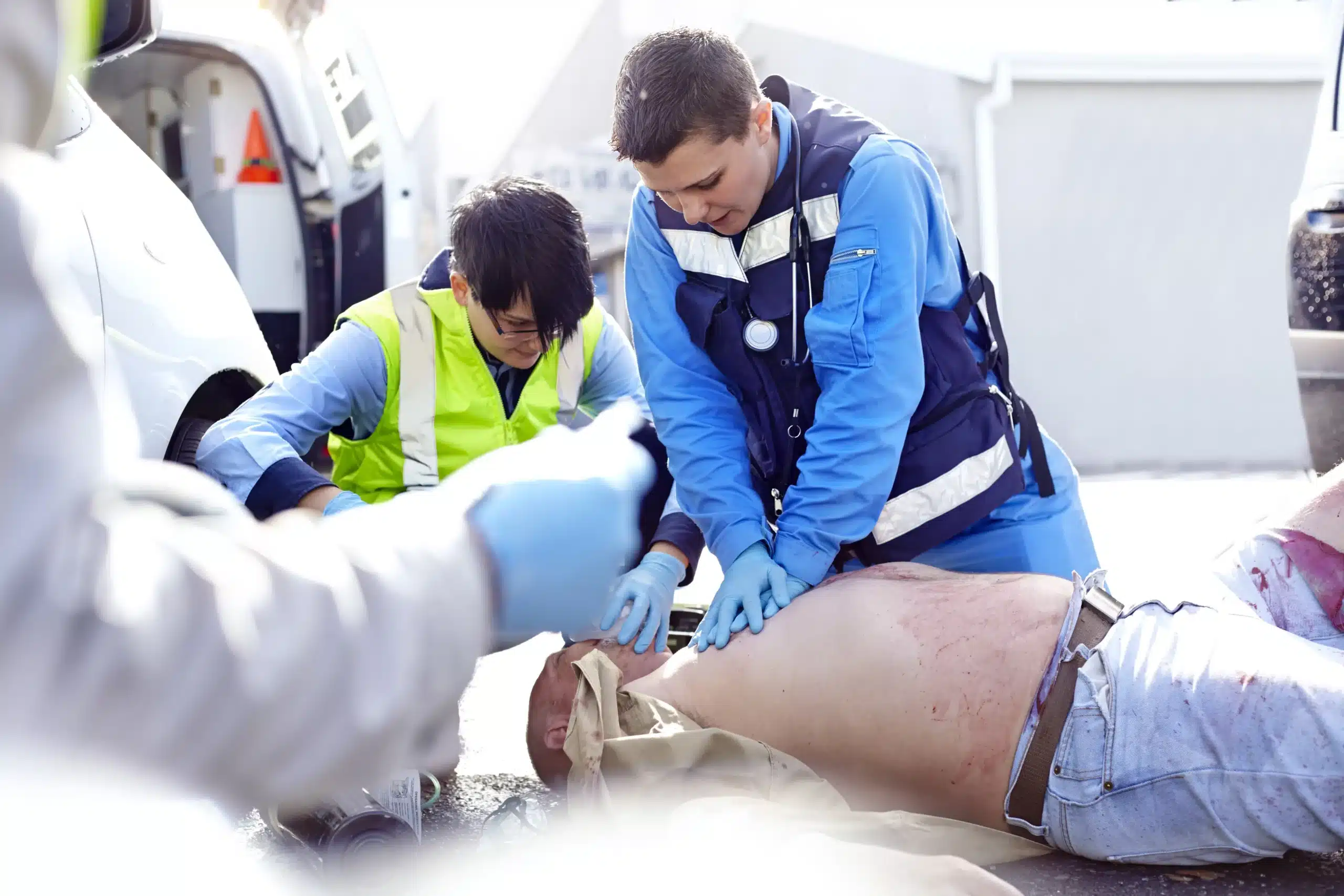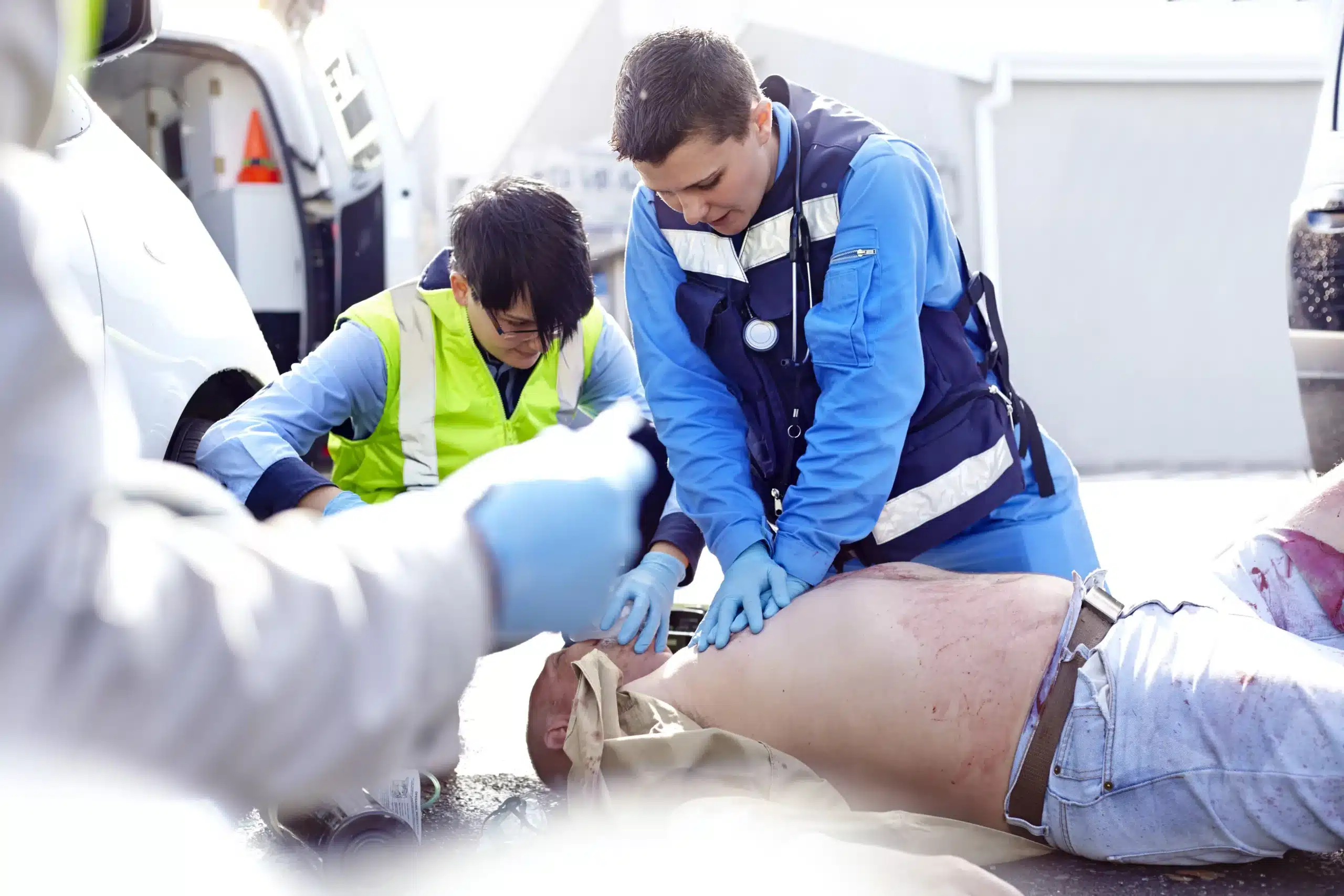Life-saving skills are empowering. But with various certifications available, knowing which one is right for you can be confusing. This guide clarifies the distinctions between BLS, ACLS, and PALS certifications, focusing on BLS ACLS PALS training Hayward offers. We’ll cover everything from course content and costs to the value these certifications bring to your career and community. Whether you’re a healthcare provider seeking advanced training or a community member wanting to learn essential life support skills, this post will help you find the perfect fit in Hayward.
Key Takeaways
- Choose the right certification: BLS provides essential life-saving skills for anyone, while ACLS and PALS offer advanced training tailored to healthcare providers managing adult and pediatric emergencies.
- Find convenient, high-quality training: Hayward CPR Classes offers AHA-certified courses in Hayward, CA, with flexible scheduling options like daily classes and group discounts.
- Invest in life-saving skills: These certifications build confidence and competence in emergency response, improving patient care and potentially saving lives. They also enhance career opportunities for healthcare professionals.
What are BLS, ACLS, and PALS?
Understanding the difference between BLS, ACLS, and PALS certifications is the first step in choosing the right training. These courses equip people with life-saving skills, but they address different levels of medical expertise and emergency situations.
Defining BLS, ACLS, and PALS
- BLS (Basic Life Support): BLS provides the foundational skills needed to respond to life-threatening emergencies. It covers essential techniques like CPR, using an automated external defibrillator (AED), basic airway management, and assisting someone who is choking. This training is the cornerstone for anyone involved in providing emergency medical care.
- ACLS (Advanced Cardiac Life Support): ACLS builds upon the foundation of BLS. It’s designed for healthcare professionals who manage patients during cardiovascular emergencies. This advanced training covers complex algorithms for treating heart attacks, strokes, and other serious cardiac conditions.
- PALS (Pediatric Advanced Life Support): PALS focuses on the specific needs of infants and children facing life-threatening situations. This specialized training equips healthcare providers with the skills to recognize and respond to pediatric emergencies, from respiratory distress to cardiac arrest. Learn more about PALS.
Why these certifications are important
These certifications are vital for maintaining public health and safety, ensuring that trained individuals can respond effectively during emergencies.
- Importance of BLS: BLS training is crucial for anyone who might need to respond to a medical emergency. It provides the fundamental skills necessary to potentially save a life, whether at home, in the workplace, or in public.
- Importance of ACLS: ACLS is essential for healthcare providers regularly dealing with cardiac emergencies. It ensures they have the advanced knowledge and skills to provide timely and effective interventions, improving patient outcomes.
- Importance of PALS: PALS certification is critical for healthcare professionals working with children. It prepares them to handle the unique challenges of pediatric emergencies, ensuring they can provide the best possible care.
Debunking common training myths
There are common misconceptions surrounding these certifications. Let’s clarify a few:
- BLS: One myth is that BLS certification is only for medical professionals. The truth is, BLS training is valuable for everyone, empowering anyone to respond effectively during a medical crisis. Learn more about BLS.
- ACLS: Some believe ACLS certification is a one-time achievement. However, recertification is essential to stay updated with the latest advancements in ACLS care, ensuring healthcare providers maintain the highest level of competency. Contact us to learn more about recertification options.
- PALS: A common misconception about PALS is that it’s only relevant in hospitals. In reality, PALS skills are valuable in any setting where children might experience a medical emergency.
BLS vs. ACLS vs. PALS: Key Differences
Understanding the distinctions between Basic Life Support (BLS), Advanced Cardiac Life Support (ACLS), and Pediatric Advanced Life Support (PALS) is crucial for choosing the right training. This section clarifies the core focus of each certification.
BLS: Your Foundation in Life Support
BLS provides the foundational skills to respond to life-threatening emergencies. It emphasizes immediate intervention, including CPR, recognizing and responding to someone who is choking, and using an AED. While often associated with healthcare providers, BLS certification is valuable for anyone who wants to be prepared. It addresses common misconceptions, like the idea that BLS training is solely for medical professionals, highlighting its importance for everyone. BLS equips individuals to provide critical support until professional help arrives.
ACLS: Managing Cardiac Emergencies
ACLS builds upon BLS, focusing on advanced interventions for adults experiencing serious cardiovascular emergencies. This includes managing cardiac arrest, strokes, and heart attacks. ACLS training covers complex algorithms and treatment protocols, requiring participants to have a solid understanding of BLS principles. It prepares healthcare professionals to make quick decisions and provide effective care in high-pressure situations.
PALS: Specialized Pediatric Care
PALS addresses the unique needs of infants and children facing life-threatening medical crises. This specialized training covers a range of pediatric emergencies, from respiratory distress and shock to cardiac arrest. Like ACLS, PALS certification requires prior knowledge of pediatric BLS skills. It empowers healthcare providers and others working with children to respond effectively to pediatric emergencies, dispelling the myth that PALS certification is only relevant in hospitals. PALS training equips individuals with the skills to provide critical care in any environment where children may need it.
Where to Find BLS, ACLS, and PALS Training in Hayward
Finding the right training center for your BLS, ACLS, or PALS certification is an important step. Here are a few options to explore in Hayward:
Hayward CPR Classes
Hayward CPR Classes offers American Heart Association (AHA) BLS, ACLS, PALS, and CPR training in Hayward. As a woman-owned AHA Training Center, they provide courses daily in over 60 cities and guarantee the lowest prices in Alameda County. Serving Hayward, Union City, and San Leandro, they offer convenient, local certification options. Learn more about their BLS, ACLS, and PALS courses on their website. They also offer group discounts for workplace training or community groups.
Safety Training Seminars
Safety Training Seminars, in partnership with Hayward CPR Classes, provides daily classes and can also conduct training at your location. Their blended learning format combines online coursework through RQI with in-person skills sessions. This approach offers flexibility for busy schedules and diverse learning styles. For more information on this convenient training option, visit the Hayward CPR Classes website.
Hayward Emergency & Health Training Center
The Hayward Emergency & Health Training Center offers various CPR, ACLS, and PALS certification courses, focusing on AHA certifications. They are another training resource located in Hayward. Contact them directly to learn more about their course schedule and offerings.
Other Training Centers in Hayward
CPR Education provides CPR classes and training in Hayward and surrounding areas. They aim to equip the community with the skills and knowledge needed for effective emergency response. Researching various providers, including CPR Education, will help you find the best fit for your needs.
Find the Right Course Format
Choosing the right course format is key to successfully completing your training. Let’s explore the different options available to you.
Benefits of In-Person Training
In-person training provides a hands-on learning experience ideal for mastering essential skills. The interactive environment allows for immediate feedback from certified instructors and fosters a sense of camaraderie among participants. Many students appreciate the direct interaction and find that in-person classes create a more engaging learning experience, leading to better retention and same-day certification. This format is perfect for those who thrive in a dynamic, face-to-face setting.
Exploring Online and Blended Learning
If you need more flexibility, online and blended learning options might be a better fit. Programs like RQI offer a convenient way to complete the theoretical coursework at your own pace, often involving an online portion and a separate in-person skills test. This hybrid approach allows you to learn the material on your schedule while still gaining the practical experience necessary for certification. Completely online options, such as a free online ACLS course, offer ultimate flexibility, accessible anytime and anywhere. Remember that hands-on skills practice is crucial for effective life support, so choose a program that includes this component.
Private Group and Corporate Training
For businesses and organizations in Hayward, private group and corporate training offers a streamlined approach to certifying your team. Providers like Hayward CPR Classes can often schedule training sessions daily and even conduct the training at your location. This customized approach ensures your team receives targeted instruction and minimizes disruption to your workday. Plus, many providers offer group discounts, making it a cost-effective way to equip your employees with these vital skills. Contact training providers directly to discuss your specific needs and arrange a private group session.
What Happens in a BLS, ACLS, or PALS Course?
This section clarifies what you can expect during your BLS, ACLS, or PALS training with Hayward CPR Classes. We’ll cover the structure, assessment methods, and certification process.
Course Length and Content
The BLS course typically requires one to two hours to complete, while ACLS and PALS courses take around three to four hours. Each course includes an online portion you can finish at your own pace, followed by an in-person skills check at our Hayward location. This blended learning approach combines the convenience of online learning with the essential hands-on practice needed for these critical skills. You can learn more about our BLS course or ACLS course. For additional information on any of our courses, please contact us.
Practice, Assessment, and Certification
After completing the online portion, you’ll schedule your in-person skills testing. This session involves demonstrating your skills on a voice-activated mannequin. You’ll work independently, but our instructors are available by phone to provide guidance and support. This approach allows for focused practice and personalized feedback. Once you successfully complete the skills check, you’ll receive your American Heart Association certification card, valid for two years. We also offer RQI classes for recertification.
Certification: Process and Renewal
Upon successful completion of both the online component and the in-person skills check, you’ll receive your American Heart Association certification card. This card is valid for two years. Recertification is essential, especially for healthcare providers, to stay up-to-date with the latest advancements in emergency cardiovascular care. For convenient and cost-effective recertification, consider our group discounts, which can be particularly helpful for teams.
Training Costs and Value
Understanding the costs associated with BLS, ACLS, and PALS training, along with the value they bring, is key to making an informed decision. Let’s break down the typical expenses and explore how you can save.
Course Costs: BLS, ACLS, and PALS
The price of these courses in Hayward, CA can differ based on the provider and the specific course. You’ll likely find BLS training to be the most affordable, with ACLS and PALS courses costing a bit more due to their advanced nature. Hayward CPR Classes offers competitive pricing and a lowest price guarantee in Alameda County. Check our website for the most up-to-date pricing on ACLS and PALS courses. Knowing the general price range helps you compare options and find a course that fits your budget.
Group Discounts and Packages
If you’re coordinating training for a group, such as your workplace or a community organization, look for providers that offer group discounts. Bundling certifications or training multiple people at once can significantly reduce the per-person cost. This is a smart way to equip your team with essential, life-saving skills affordably. Contact Hayward CPR Classes to discuss your group’s needs and explore available discounts.
Same-Day Certification
A major advantage of many training programs, including those at Hayward CPR Classes, is receiving your certification the same day. This means you’ll receive your official American Heart Association certification card immediately upon successfully completing the course. This is incredibly helpful for professionals who need to quickly meet licensing requirements or workplace mandates. No more waiting for your certification to arrive—you’re ready to go right away.
Schedule Your Training
Ready to get your BLS, ACLS, or PALS certification? Hayward CPR Classes offers a variety of scheduling options to fit your needs.
Class Schedules and Options
We offer daily classes, making it easy to find a time that works for you. Whether you’re a busy professional, a student, or have other commitments, we have options to accommodate your schedule. For larger groups, we can even bring the training to your location. This on-site training is convenient and cost-effective, especially with our group discounts.
How to Enroll
Getting started is simple. Contact us directly through our website to learn more about course schedules, pricing, and to register for a class. Our team is here to answer any questions and help you find the perfect course. For the most up-to-date information on class availability and pricing, visit our website.
Preparing for Your Course
We want you to feel confident and prepared for your training. Before your class, watch the pre-course videos. These videos provide a preview of the material and significantly increase your chances of passing the skills test. While our courses are designed to be engaging and accessible, CPR training does involve physical components. If you have any physical limitations, please consider your abilities and contact us to discuss any accommodations. Rescheduling is always an option if needed.
Instructor Expertise and Quality
When your health—or the health of someone you love—is on the line, you want the best possible care. This means choosing CPR training with qualified instructors who meet industry standards. It’s not just about a certification; it’s about the confidence and skills to act in emergencies.
AHA Certification and Experience
The American Heart Association (AHA) sets the standard for CPR and First Aid training. Training led by AHA-certified instructors ensures you receive high-quality, evidence-based instruction. Hayward CPR Classes prioritizes this certification, equipping you with the knowledge and skills to make a real difference. Look for training centers with this commitment; it demonstrates a dedication to the gold standard of life-saving instruction.
OSHA Compliance
Workplace safety is critical, and Occupational Safety and Health Administration (OSHA) guidelines are key. While OSHA doesn’t certify CPR training courses, it recognizes the AHA’s authority. Many employers require OSHA-compliant CPR training. Choosing an aligned program, like the one offered by CPR Certification Plus, prepares you for workplace emergencies and fulfills employer requirements. This focus on compliance offers peace of mind, knowing your training meets recognized safety standards.
How BLS, ACLS, and PALS Impact Healthcare Professionals
These certifications are invaluable for healthcare professionals, impacting everything from patient care to career advancement. Let’s explore the key benefits:
Build Skills and Confidence
BLS, ACLS, and PALS courses aren’t just about checking boxes. They provide hands-on, practical training using mannequins and AEDs. This approach helps participants develop the muscle memory and critical thinking skills needed to respond effectively in emergencies. The focus on building confidence ensures healthcare providers can perform CPR and first aid even under pressure. Knowing you can handle a crisis makes a real difference in providing quality care. Hayward CPR Classes offers this type of hands-on training, giving you the confidence to act quickly and effectively.
Improve Patient Care
These certifications directly translate to improved patient outcomes. ACLS training equips professionals with the advanced skills to manage cardiac arrest and other life-threatening cardiovascular emergencies. Similarly, PALS certification empowers providers to recognize and respond to emergencies in infants and children. Having these specialized skills can significantly improve patient care and potentially save lives. For healthcare providers in Hayward, ACLS courses are readily available to enhance these critical skills.
Meet Certification Standards
Holding current BLS, ACLS, and PALS certifications demonstrates a commitment to the highest standards of patient care. These courses, often required for healthcare roles, are officially certified by the American Heart Association. Certification cards are typically provided on the same day as the skills test, offering immediate proof of competency. Maintaining these certifications keeps you up-to-date with the latest guidelines and best practices in emergency care. You can find more information on BLS certification and other courses offered by Hayward CPR Classes on their website.
Choose the Right Training in Hayward
Choosing a Training Provider
Finding the right training provider is the first step. Look for providers like Hayward CPR Classes offering American Heart Association (AHA) certified courses. AHA certification is the gold standard, ensuring your training meets nationally recognized guidelines. Many providers, including Safety Training Seminars, offer a range of courses, from BLS and ACLS to PALS and CPR/First Aid. Check if they also offer specialized courses like NRP and EMSA, which might be relevant to your career goals. Convenience is also key. See if the provider offers classes daily and group discounts, especially if you’re coordinating training for a team. Hayward CPR Classes offers discounts for group classes.
What Makes Hayward Training Unique?
Hayward offers a unique blend of accessibility and quality in CPR and first-aid training. The high demand for these courses in Hayward reflects the community’s commitment to preparedness. With various class times available, you can find a schedule that fits your life, even with a demanding job or family commitments. This flexibility is a major advantage. Plus, with Hayward CPR Classes’ commitment to the lowest prices in Alameda County, you can get top-tier training without breaking the bank. They offer daily classes in over 60 cities.
Make the Right Choice for Your Career
The right training can significantly impact your career, especially in healthcare. ACLS training equips healthcare professionals with the advanced skills needed to manage cardiac emergencies, a critical aspect of patient care. Even if you’re not in healthcare, understanding Basic Life Support (BLS) can be invaluable. BLS empowers you to respond effectively in emergencies, potentially saving lives. Whether you’re a healthcare provider, a workplace safety coordinator, or simply someone who wants to be prepared, choosing the right training is an investment in yourself and your community. Contact Hayward CPR Classes to learn more about their course offerings or explore their RQI classes. You can reach them through their contact page.
Related Articles
- BLS CPR Courses in Hayward, CA – Hayward CPR Classes
- AHA ACLS Classes in Hayward, CA – Hayward CPR Classes
- AHA PALS Classes in Hayward, CA – Hayward CPR Classes
- CPR, BLS, ACLS, PALS, and First-aid Courses in Hayward, CA
- Importance of Workplace CPR and First-Aid Training
Frequently Asked Questions
What’s the difference between CPR and First Aid?
CPR focuses specifically on restoring breathing and circulation in someone who has experienced cardiac arrest. First Aid covers a broader range of injuries and illnesses, from minor cuts and burns to more serious situations like choking or allergic reactions. Often, these two skill sets are taught together, providing comprehensive training for responding to various emergencies.
How do I choose between BLS, ACLS, and PALS?
BLS is the foundation for anyone, while ACLS and PALS build upon those basics for healthcare providers. If you’re a medical professional dealing with adult cardiac emergencies, ACLS is essential. If you work with infants and children, PALS is the right choice. If you’re unsure, contact a training provider like Hayward CPR Classes to discuss your specific needs.
How long does my certification last, and how do I renew it?
American Heart Association certifications, including BLS, ACLS, and PALS, are typically valid for two years. Renewal involves taking a recertification course before your current certification expires. Check with your training provider for recertification options and schedules. Hayward CPR Classes offers RQI classes for convenient recertification.
What if I have a busy schedule and can’t attend a traditional class?
Many training centers offer flexible options like blended learning, which combines online coursework with in-person skills testing. This allows you to learn the material at your own pace and then demonstrate your skills in a hands-on session. Some providers also offer completely online courses, but remember that hands-on practice is crucial for developing life-saving skills.
Why should I choose Hayward CPR Classes for my training?
Hayward CPR Classes offers high-quality, AHA-certified courses at competitive prices. They are a woman-owned business with a commitment to serving the Hayward community. Their convenient location, daily classes, and group discounts make them a great option for individuals and organizations in the area.
This article was written for free by MEGA SEO.
